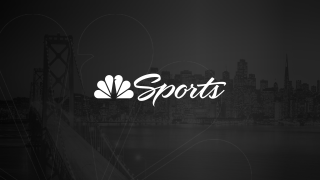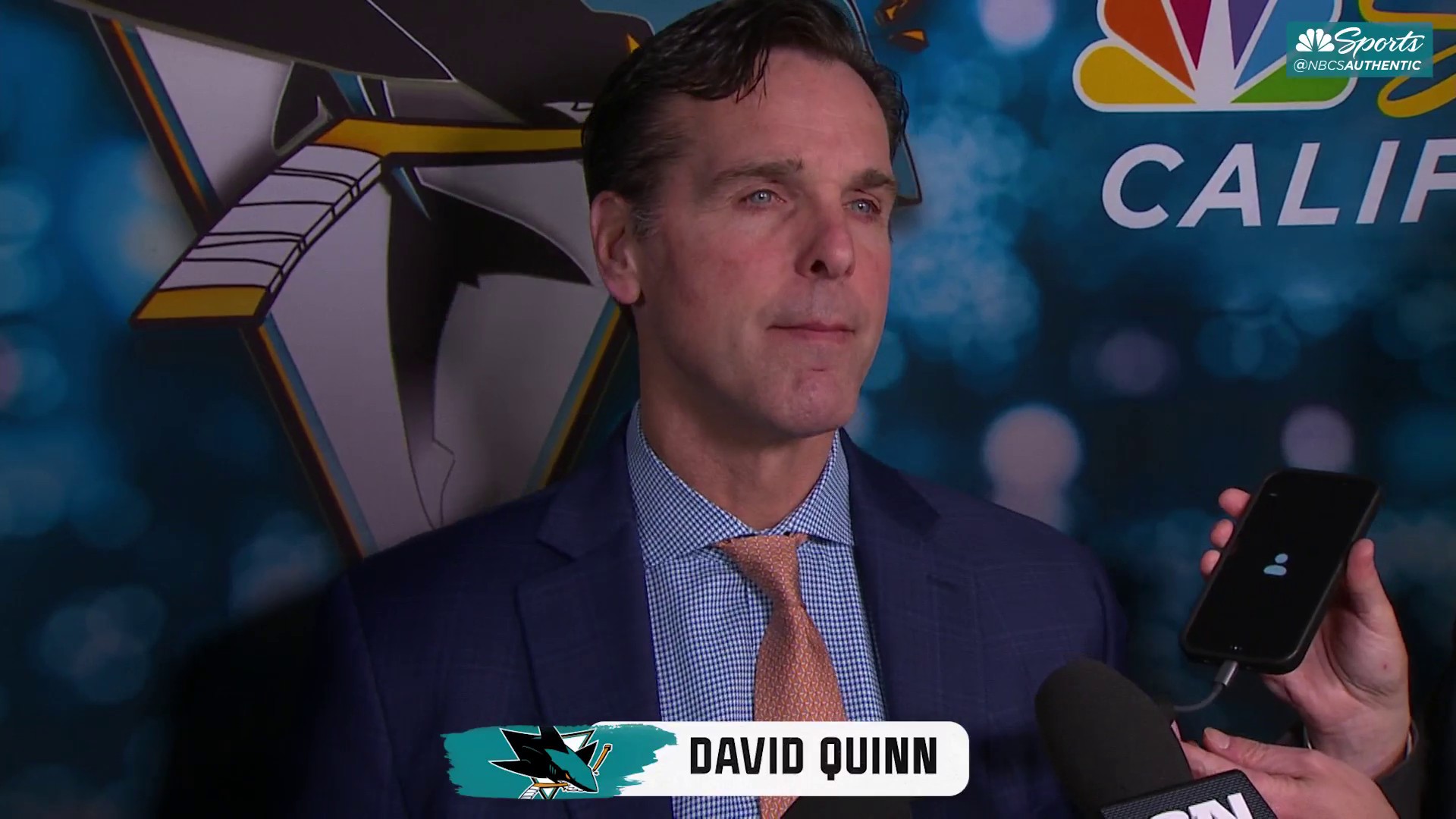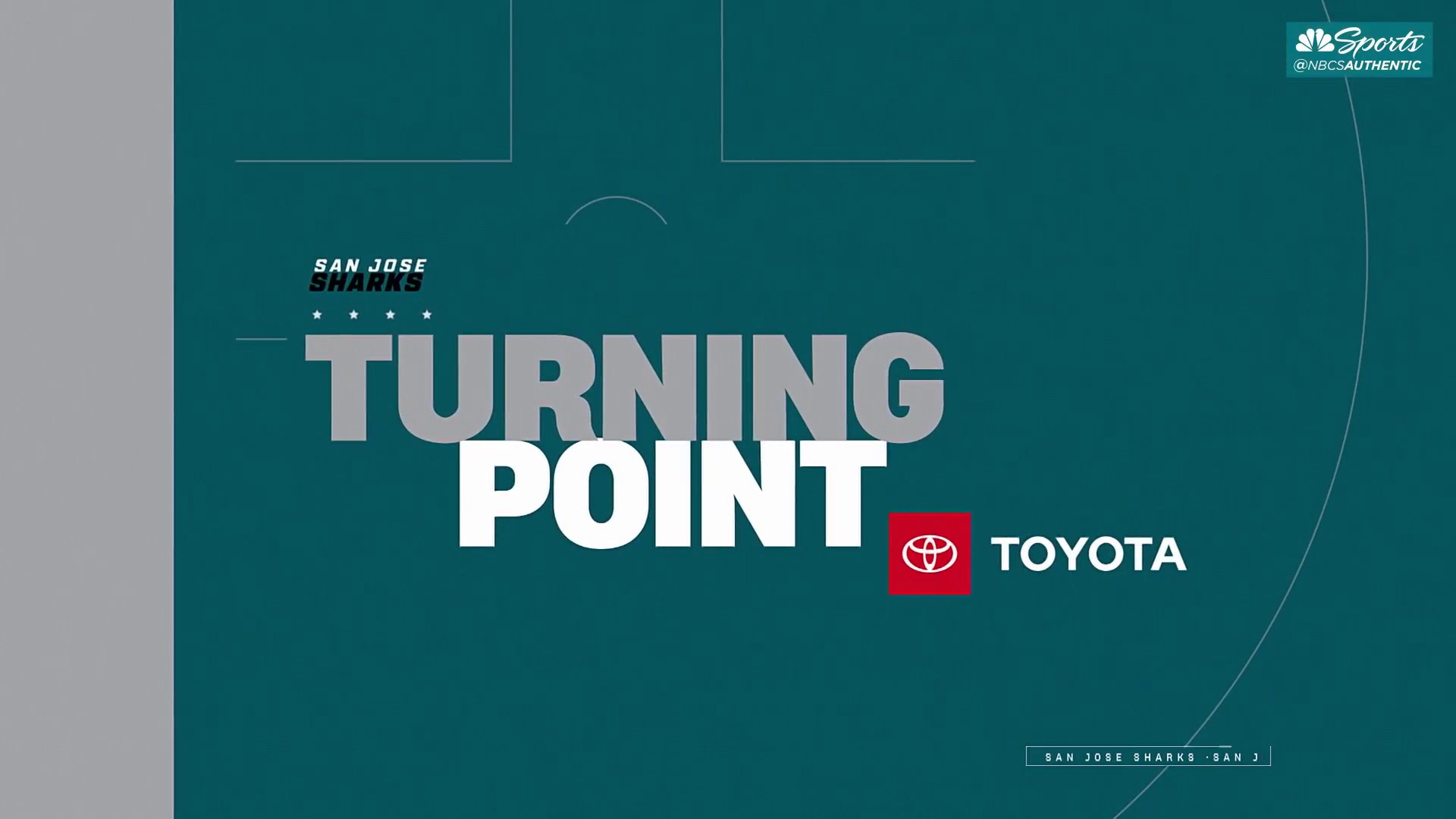
For those of you who havent been paying attention to the NHLs collective bargaining process:
First of all, I envy you.
Secondly, I figured now was as good a time as any to try and figure out when and how this thing will end, now that that the league seems ready to actually negotiate a fair deal with its players.
Stay in the game with the latest updates on your beloved Bay Area and California sports teams! Sign up here for our All Access Daily newsletter.
RELATED: NHL owners propose 50-50 split
So, here are five somewhat random thoughts on the 31st day of the NHL lockout, but perhaps the first day of real progress towards starting the 2012-13 season.
1On there being a season
First things firstthere will be NHL hockey this season.
San Jose Sharks
Whenever people have asked me in recent weeks if there would be a season, my response was something along the lines of yes, they cant be that dumb, followed by, at least I dont think so, anyway Hopefully they will prove me right, as its hard to think the NHL and NHLPA dont realize they would be the laughing stock of professional sports if they suffered a second cancelled season in eight years. Not to mention, the damage theyd be doing to the league and money theyd be surrendering.
It also looks to me like the NHL had a clear plan all along. With their most recent offer, and with it being the middle of October already, the league knows theres a small window for the players to get a deal done in which they wont have to sacrifice a single paycheck (although just how the NHL plans to get to 50 percent of revenue from 57 percent without a large escrow sacrifice by the players, has yet to be fully explained).
Still, there is work to be done on a number of issues, and no one knows every little detail of the NHLs proposal except the two parties involved (the NHLPA is reviewing it now). A season beginning on Nov. 2 is far from a sure thing at this point. In fact, a Thanksgiving or early December start date might still be more likely than Nov. 2.
2On the 5050 split
Even before the lockout began, one NHL source told me that the leagues goal would be to get hockey related revenue down to a 50-50 split from the 57 percent that players received at the end of the last CBA. Even the players surely knew that this was coming, especially on the heels of recent deals in the NBA (51 percent to the players) and NFL (47-48.5 percent to the players).
Well, now its finally on the table.
Of course, that doesnt mean the players are just going to roll over and accept it. The biggest single concern the players have had since the lockout began is that they want their current contracts honored in full. The league finally recognized they were serious about this, and according to what Gary Bettman said on Tuesday, there are no salary rollbacks included in their latest proposal. In fact, according to reports, there are clauses in the deal that ensure the players wont have to give back a large percentage of their salaries in the first year, despite the reduction in hockey-related revenue.
My guess is that the players will agree to a 5050 revenue split, although not necessarily right away. I think theyll push for something along the lines of 53 percent next season with a gradual reduction to 5050 within a few years. As revenues (hopefully) increase, current contracts wont be subject to an escrow reduction.
The two parties, obviously, will talk about this again.
3On contract lengths
This issue is nearly as important as money to the owners, who need some sort of a clause in future contracts to protect them from themselves. That means teams like Philadelphia (Chris Pronger and the Shea Weber offer sheet) and New Jersey (Ilya Kovalchuk) wont be able to circumvent the salary cap with lifetime deals in order to ink the most sought-after free agents.
It also means contracts like those signed by Ryan Suter and Zach Parise with Minnesota this summer will be a thing of the past.
Owners have requested a five-year cap on all contracts, and its hard to imagine the NHLPA will go for that. Still, I would expect that this is something that the owners will take a hard stance on. In the end, I think we can expect something along the lines of a six or seven year maximum on future deals, perhaps with a rule that salaries be the same every season, and a teams cap number will be measured in real dollars rather than the average salary for the life of the deal as it is now.
4On minor league reassignments counting against the cap
Our friends at ProHockeyTalk.com have already dubbed this the Wade Redden Rule, and its another potential roadblock to getting a deal done.
As it stands now, NHL teams like the New York Rangers are allowed to send players that have cleared waivers to their minor league clubs in order to have them not count against the cap, such as they did with Redden, who signed a six-year, 39 million deal in 2008 but now suits up for the Connecticut Whale in the AHL.
The league wants to put an end to that practice, as it gives the higher revenue clubs an unfair advantage. For example, if the Flyers wanted to jettison goaltender Ilya Bryzgalov, who already looks like a colossal mistake and has eight years and 45 million remaining on his deal, to their minor league affiliate, his salary would still be counted against the cap.
Again, this is something the NHLPA will not be so sanguine on, as it takes money directly from its coffers. At the same time, in my opinion (and likely the opinion shared by many mid-to-low revenue clubs), teams like New York and Philadelphia ought to be penalized for making ill-advised personnel decisions.
Its hard to predict how this will end up.
5On the PR battle
The NHL suffered an embarrassment on Monday when Deadspin revealed that it had hired a Republican Party strategist to help minimize damage in terms of public opinion. Theres no question the league was losing the PR battle, as many fans viewed the owners as a bunch of greedy billionaires who were looking to line their pockets with money that was already promised to the players.
Well, if the players reject todays NHL proposal outright, theyll risk losing that majority support from the fan base.
Its hard to argue a 5050 split is anything but fair, especially if the league is promising to honor current signed deals in full. Although it was their decision to lock the players out, the owners and Bettman have helped to oversee a league that has grown to 3.3 billion in revenuesthereby making the players richer in the process. They assume all the risk, and have run the league on just 43 percent of revenues. Lockout aside, its hard to argue that theyve been successful in doing just that.
Several players, including the Sharks' Dan Boyle, have said in recent weeks that they knew there would have to be certain givebacks to the owners. We'll find out now if they were serious.


